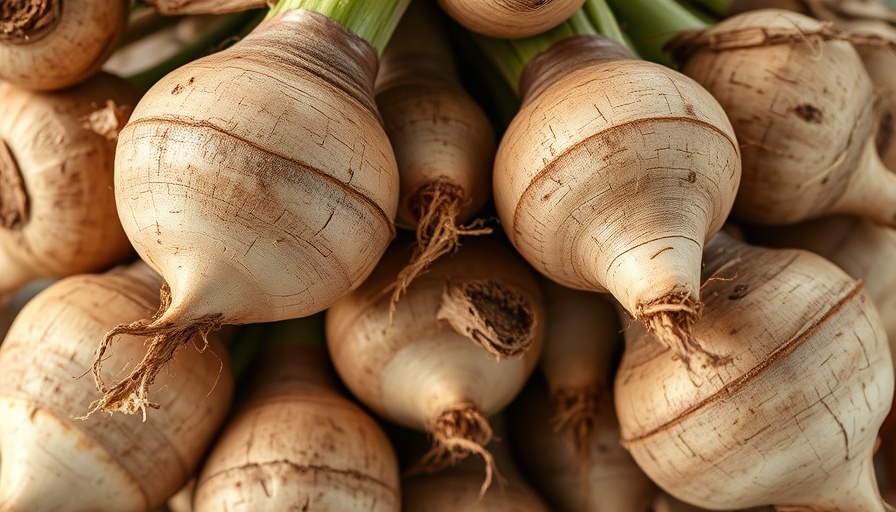
Understanding Your Monstera's Needs
As a homeowner, it's essential to connect with your houseplants, especially popular varieties like Monstera deliciosa. These tropical plants are not just visually appealing; they serve as indicators of your indoor environment’s health. Known for their distinct heart-shaped leaves, Monsteras thrive in specific conditions. Regular check-ins can reveal much about their state and aid in keeping them vigorous.
Signs of a Distressed Monstera
If you find yourself wondering if your Monstera is sick, start by observing its leaves closely. Yellowing leaves, according to plant expert Megan Brame, are often the first sign of distress. Drooping leaves typically follow, and you may eventually notice brown, crispy edges. These symptoms can stem from several issues, including overwatering or lack of nutrients. Another red flag is leaf curling, which can indicate that the plant is either too dry or receiving insufficient light.
Common Misunderstandings
One common misconception among plant parents is that yellowing leaves always signal a dire issue. Gail Pabst from the National Garden Bureau clarifies that sometimes, yellowing can simply indicate that a leaf is aging, particularly if it’s from the lower part of the plant. Understanding the lifecycle of the leaf is crucial for proper care.
Creating a Thriving Environment
For optimal growth, Monsteras require a well-lit environment without direct sunlight, which can scorch their leaves. If your plant exhibits leggy growth, it might be signaling a lack of adequate light. Consider relocating your Monstera to a brighter spot, ensuring it continues to grow healthy and strong.
The Importance of Regular Monitoring
As a plant owner, your responsibility extends beyond mere ownership. Regularly checking your Monstera for health indicators fosters a proactive approach to plant care. It’s good practice to inspect your plants weekly, ensuring any signs of distress are caught early. By bearing a watchful eye, you can enjoy the beauty of a healthy Monstera for years to come.
Actionable Steps for Plant Care
To keep your Monstera in tip-top shape, implement these practical tips:
- Adjust lighting as necessary—move your plant closer to or further from windows based on its needs.
- Check for pests regularly; spider mites and aphids can pose a threat.
- Water only when the top inch of soil is dry; this prevents overwatering.
- Fertilize with a balanced feed during the growing season to ensure nutrient intake.
Conclusion: Your Role in Plant Vitality
By being attentive and responsive to your Monstera's needs, you empower yourself to provide a flourishing environment for your beloved plant. Whether you're a seasoned plant enthusiast or just starting, nurturing a Monstera becomes easier with these checks and adjustments. Embrace your green thumb and keep your indoor oasis thriving!
 Add Row
Add Row  Add
Add 




 Add Row
Add Row  Add
Add 

Write A Comment